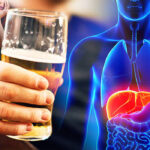Drug addiction takes over a person’s life, influencing their actions, thoughts, and feelings. Addiction can lead to people losing jobs, friendships, health, and even their life. It’s a serious problem affecting 20.3 million people in the United States in 2018.
While past views proposed that addiction was a matter of choice, today’s scientists and researchers have shown that drug addiction is a complex chronic illness that can have long-lasting effects. Supporting this viewpoint of addiction as a chronic illness is the evidence of drugs’ short-term and long-term effects on the brain.
People with drug addiction often can’t stop with motivation alone. The physical changes in the brain cause them to crave their drug of choice, lose control over their use of it, and continue to seek it despite adverse consequences.
There is an ongoing debate regarding whether drug addiction is considered a disease or a result of a voluntary choice. We break this concept down in our blog post, “Drug Addiction: Disease or Choice?“
These biological changes illustrate why people with drug addiction can’t stop by willpower or good intentions alone. It takes work and time to help the brain heal. The longer a person has abused drugs, the more significant the disruption to the brain.
Overall, drug addiction affects the brain by:
- Interfering and changing the brain’s chemical signals which disrupt the brain’s communication systems
- Changing the brain’s “reward circuit,” which increases drug-seeking behavior
- Altering the extended amygdala, which causes people to seek and use drugs to avoid feelings of withdrawal
- Interfering with the prefrontal cortex’s functioning, which can lead to problems with self-control and decision-making
Drug addiction is a serious illness. Fortunately, professional treatments can help. Contact the free Rehab Helpline for Drugs and Alcohol at (877) 467-4825 to talk with an admissions expert who can answer your questions to help you or a family member.
If you have a loved one or know someone with a drug addiction, we wrote a quick guide on practical steps that can be taken to defeat addiction. Read it here.
4 Ways Drug Addiction Affects the Brain
No matter how a drug is consumed, it passes through the body and into the brain. Once there, drugs start making changes to the brain’s communication system.
Various drugs may impact the brain differently, depending on if it’s a stimulant, depressant, or hallucinogen. Regardless, imaging studies have shown that individuals with drug addiction experience changes in their brain’s functioning, which influences their behaviors and decisions. These changes can have short-term and long-term impacts on the brain’s functioning, even after the person stops using the substance.
The sooner a person stops using drugs, the less likely they will experience long-term symptoms. But there is hope. People who have been addicted for an extended period, still notice improvements after stopping their drug use. Here are four ways drug addiction can affect your brain and behavior.
1. Interferes and changes your brain’s chemical signals disrupting regular communication in the brain
The brain uses a system of cells called neurons to communicate, process, and send signals. The neurons use chemical signals, called neurotransmitters, to send the messages. These messages control your thinking, decisions, and behaviors.
Many drugs interfere with this natural communication system. The drugs can prevent nerve cells from sending, receiving, or processing information as they usually would. When a person has an addiction, the substances alter the levels of neurotransmitters, which contributes to craving the drug, loss of control, and poor decision-making.
For instance, some drugs are chemically similar to natural neurotransmitters. As a result, when the drug enters the brain, it imitates the natural neurotransmitter and ‘tricks’ the brain’s receptors to send abnormal messages.
2. Changes the brain’s “reward circuit,” increasing drug-seeking behavior
Your brain is designed to motivate you to repeat healthy experiences that make you feel good, like eating or socializing. Unfortunately, drugs can disrupt and take over the pleasure/reward circuits in your brain. As a result, the substances take over and cause the brain to crave more of the drug.
Drugs can cause your brain’s reward circuit to be flooded with dopamine. Dopamine is associated with feelings of pleasure. It helps reinforce behaviors, like eating. But in the case of addiction, it causes the person to need to keep seeking their drug of choice to reexperience the surge in dopamine.
The longer someone uses a drug, the stronger the neural connection. The brain becomes addicted.
Additionally, drugs tend to be stronger reinforcers than natural reinforcers like food. As a result, people will place a higher priority on using drugs than other everyday activities.
Over time, the reward circuit also adapts to the drug. As a result, it takes more of the substance to achieve the pleasurable feeling. Therefore, people tend to keep using more of the drug the longer they are addicted. This process is one of the reasons it’s hard for people with drug addiction to stop.
3. Alters the extended amygdala, which can cause drug-seeking behaviors
The brain’s extended amygdala is involved with feelings like anxiety, unease, and irritability. Many of these feelings are involved in withdrawal from a drug. These feelings can drive a person to use their drug of choice to make these feelings go away.
This circuit involving the extended amygdala becomes increasingly more sensitive with continued drug use. If the addicted person doesn’t have enough of the substance in their system, they can feel anxious and stressed due to the changes in their brain’s functioning. When a person reaches this stage of addiction, they typically are using drugs to avoid these negative feelings and not for the pleasurable effects they first experienced when using the drug.
4. Negatively impact the prefrontal cortex, which interferes with self-control and decision-making
The brain’s prefrontal cortex helps people make decisions, monitor their behaviors, use good judgment, and inhibit behaviors. For instance, when this system is disrupted, people make poorer decisions such as choosing immediate rewards over delayed rewards even if the delayed response would be better for them.
Imaging studies have found that addiction disrupts the prefrontal cortex, including the anterior cingulate gyrus. These regions are typically activated when an addicted person is craving and intoxicated, and deactivated during withdrawal. As a result, the brain will overvalue the drug and interfere with the person’s ability to control, monitor, and make good decisions.
Structural MRI research also has shown that people with addiction may experience structural changes in their frontal cortex regions. Chronic drug use can enlarge or shrink some brain areas, which can interfere with decision making, planning, and self-control.
These different brain changes are one reason why it’s so hard for people with an addiction to stop using even when they want to quit taking drugs.
Brain Changes Due to Drug Addiction Makes It Hard for People to Stop Using
Drug addiction isn’t something that the person can typically stop with willpower alone. Drug addiction changes the brain, including how it responds to stimuli and communicates. These physical changes lead to behavioral and mental changes, such as seeking more of the substance and poor decision making.
Fortunately, drug addiction can get better with help and treatment. The longer you or a loved one wait to get help, the greater the risk of long-term physical impacts from the addiction. The free Rehab Helpline for Drugs and Alcohol at (877) 467-4825 will connect you with an admissions expert who can answer your questions to help you or a family member find help with their drug addiction.









